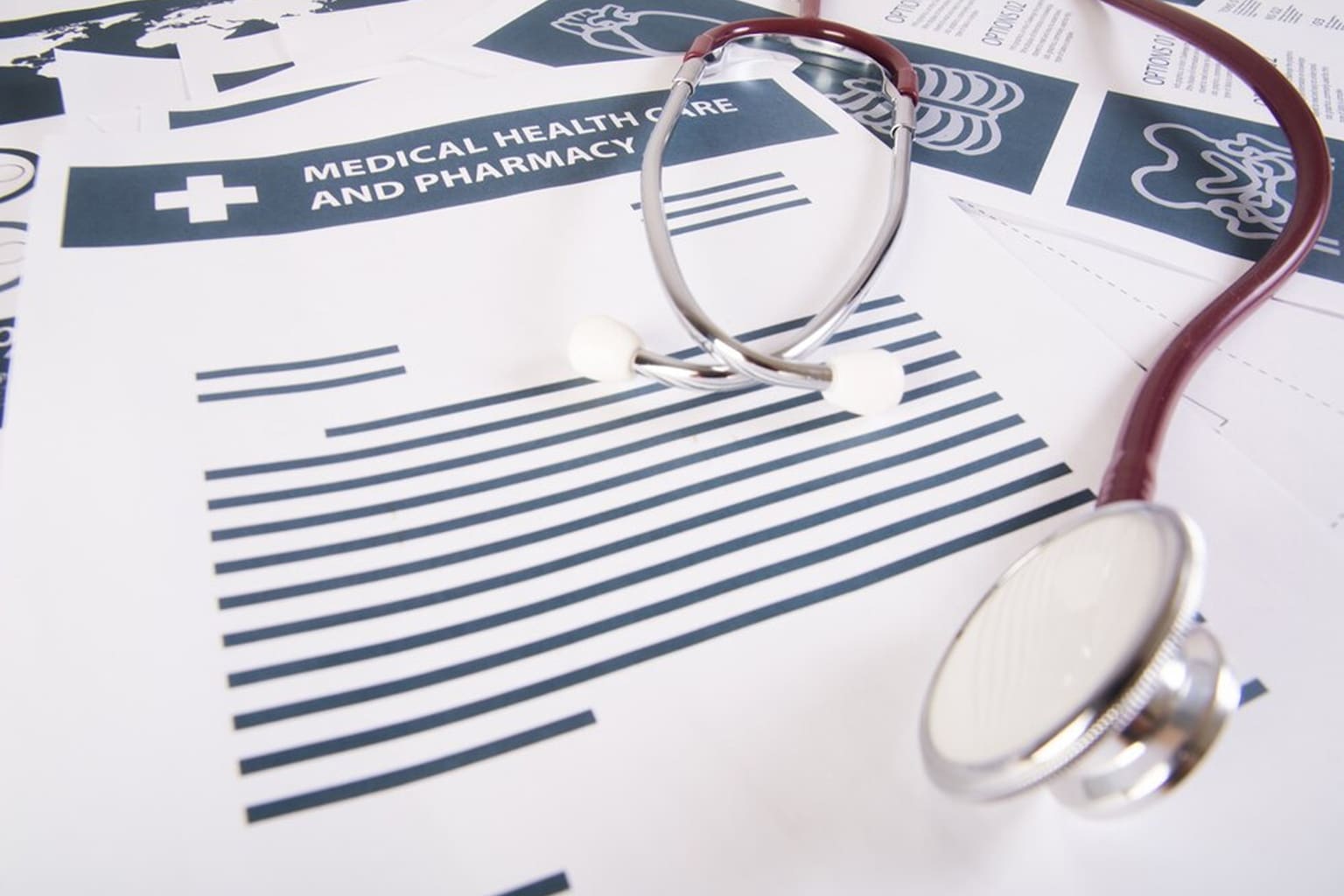Failure in Anaesthesia Monitoring: Legal Help in Ireland for Compensation and Patient Rights
In Ireland, if you're a victim of a failure in anaesthesia monitoring, specific laws protect you. The Medical Practitioners Act 2007 and the Civil Liability Act 1961 offer a clear framework for lodging medical negligence claims. However, the legal landscape can be complex, so you'll need expert help. Solicitors specialising in medical negligence cases can guide you through this often-daunting procedure, ensuring your rights are upheld. They're your go-to advisors when understanding medical laws feels like trying to decipher ancient hieroglyphics and getting the compensation you deserve seems as challenging as climbing Croagh Patrick barefooted. So, whether it's defending your rights or wading through red tape, they've got your back. Now, let's delve into the specifics of these laws.
If you have experienced a failure in anaesthesia monitoring in Ireland, you may be entitled to seek legal help to pursue a medical negligence claim. It's important to consult with a specialised medical negligence solicitor who can assess your case and determine the best course of action.
Failure in Anaesthesia Monitoring - Laws in Ireland
In Ireland, cases of medical malpractice and negligence related to anaesthesia monitoring failures are primarily governed by two key pieces of legislation: The Medical Practitioners Act 2007 and the Civil Liability Act 1961. These laws serve as the foundational legal framework for overseeing medical professional conduct and handling medical negligence claims.
The Medical Practitioners Act 2007 empowers the Medical Council to set and enforce professional standards and guidelines for anaesthesia administration and monitoring. These standards play a critical role in ensuring that healthcare professionals involved in the administration of anaesthesia adhere to best practices, ultimately safeguarding patient safety and well-being. This act is essential in upholding the integrity of anaesthesia procedures and maintaining high-quality care standards within the medical field.
On the other hand, the Civil Liability Act 1961 establishes the legal foundation for medical negligence claims, including those arising from anaesthesia monitoring failures. This act outlines the rights of patients who have experienced medical negligence, including anaesthesia-related issues, and provides a legal framework for seeking recourse through the civil justice system.
For instance, if a patient experiences complications or harm due to inadequate anaesthesia monitoring, they can seek legal assistance under these established laws. This ensures that patients' rights are protected, holding medical professionals and institutions accountable for any lapses or errors in anaesthesia monitoring.
Patients who have experienced anaesthesia monitoring failures can seek legal recourse under these laws, which are designed to protect their rights and ensure accountability.
It's evident that these laws play a crucial role in ensuring patient safety and holding healthcare providers accountable in cases of anaesthesia monitoring failures.

Legal Assistance for Anaesthesia Monitoring Failure in Ireland
When seeking legal help in Ireland for anaesthesia monitoring failure, it's crucial to connect with specialised medical negligence solicitors who have extensive experience in handling these cases. These solicitors comprehend the intricate and sensitive nature of medical negligence claims, particularly those related to anaesthesia monitoring failure, and can provide expert guidance, support, and representation throughout the entire process.
Their expertise enables them to navigate the complex legal procedures involved in these cases, ensuring that their clients' rights are protected and advocated for. From gathering crucial evidence to building a strong case, these solicitors play a pivotal role in advocating for fair compensation on behalf of individuals who have suffered harm due to inadequate anaesthesia monitoring. As trusted legal professionals, they serve as unwavering allies for their clients, utilizing their depth of knowledge and understanding of medical negligence laws to pursue the best possible outcomes.
For instance, let's consider a scenario where a patient experiences complications during surgery due to overlooked anaesthesia monitoring. In this situation, a seasoned medical negligence solicitor can step in to meticulously investigate the circumstances surrounding the incident, consult with relevant medical experts, and craft a compelling case that highlights the negligent practices that led to the patient's suffering. Through tenacious advocacy, they aim to secure just compensation that reflects the physical, emotional, and financial impact experienced by the individual.
Furthermore, these legal professionals remain devoted to their clients throughout every stage of the legal process. They offer unwavering support and guidance, addressing any concerns or queries that may arise while ensuring that their clients are equipped with comprehensive legal understanding. This level of personalized attention is instrumental in alleviating some of the stress and uncertainty that often accompany medical negligence claims.
In essence, securing legal assistance from proficient medical negligence solicitors in Ireland following an anaesthesia monitoring failure empowers individuals to assert their rights and seek rightful recompense for the harm they have endured. It underscores the significance of having seasoned advocates who are committed to pursuing justice on behalf of those impacted by lapses in anaesthesia monitoring.
Considering the vital role of legal assistance in cases of anaesthesia monitoring failure brings into focus the dedicated professionals who champion accountability within the realm of medical negligence.
Accountability for Anaesthesia Monitoring Failures
When undergoing medical procedures involving anaesthesia, patients place their trust in the healthcare professionals and institutions responsible for their care. This includes anaesthesiologists, hospitals, surgical teams, and other relevant healthcare personnel. Each entity plays a crucial role in ensuring adequate anaesthesia monitoring to minimize the risk of complications during and after medical procedures.
Anaesthesiologists are at the forefront of anaesthesia management and play a pivotal role in patient safety during surgery. They are responsible for administering the appropriate dosage of anaesthetic agents, closely monitoring vital signs, and adjusting anaesthesia as necessary to ensure the patient's well-being throughout the procedure. Their expertise and vigilance are paramount in preventing adverse events related to anaesthesia administration.
Hospitals and surgical teams also bear the responsibility of upholding the highest standards of care when it comes to anaesthesia monitoring. This encompasses providing an environment equipped with modern monitoring equipment, ensuring that healthcare personnel are adequately trained in operating and interpreting monitoring devices, and adhering to established protocols for anaesthesia management.
It's important to note that the duty of care extends beyond the duration of the procedure. Post-operative monitoring and timely intervention in case of any complications are also integral parts of ensuring patient safety and well-being.
At its core, accountability for anaesthesia monitoring failures revolves around maintaining proper vigilance and adherence to established protocols. Healthcare professionals and institutions are expected to stay updated with advancements in anaesthesia monitoring technology and best practices, integrating them into their standard operating procedures to provide the highest level of patient care.
Legal Implications and Patient Rights
From a legal standpoint, patients have rights pertaining to anaesthesia monitoring and overall quality of care during medical procedures. When negligence or failure in adequate anaesthesia monitoring leads to harm or injury, patients may seek legal recourse to hold accountable the responsible parties for their lapses in care.
In Ireland, legal avenues exist for patients who experience adverse outcomes due to anaesthesia monitoring failures. Seeking legal assistance can help patients pursue compensation for damages incurred as a result of substandard anaesthesia management, while also serving as a means to demand accountability from healthcare providers and institutions.
Understanding the critical role that healthcare professionals and institutions play in ensuring adequate anaesthesia monitoring underscores the significance of upholding patient safety as a fundamental tenet of medical practice.
Leading Healthcare Law Firms in Ireland
In Ireland, medical negligence cases demand specialised legal expertise due to their complex nature. Distinguished healthcare law firms in the country focus on representing clients in cases, especially those related to anaesthesia monitoring failures. These firms have earned a strong reputation for their commitment to securing justice for individuals impacted by medical malpractice, equipped with a profound understanding of the legal intricacies surrounding healthcare negligence and anaesthesia monitoring failures.
When dealing with medical negligence, having a legal team that not only comprehends the complexities of the case but also possesses a successful track record holds paramount importance. Reputable healthcare law firms in Ireland employ legal professionals with extensive experience in handling cases related to anaesthesia monitoring failures. Seasoned lawyers within these firms are adept at navigating the intricate legal landscape governing medical malpractice claims.
For instance, leading healthcare law firms often have a dedicated team of attorneys and support staff specialising in medical negligence cases. Their comprehensive knowledge extends to areas such as reviewing medical records, consulting with expert witnesses, and crafting compelling litigation strategies specific to anaesthesia monitoring issues. This depth of expertise is crucial in building robust legal arguments on behalf of their clients.
Moreover, the commitment of these healthcare law firms goes beyond legal expertise. They extend compassionate support and guidance to individuals and families affected by anaesthesia monitoring failures, prioritizing client well-being while relentlessly pursuing just outcomes.
Given the intricate nature of medical negligence cases and anaesthesia monitoring failures, seeking legal recourse through reputable healthcare law firms becomes imperative for individuals seeking compensation and justice. By enlisting the services of these distinguished firms, clients gain access to unwavering legal advocacy tailored to their specific needs, backed by a wealth of experience and an unwavering commitment to seeking redress in the face of medical malpractice.
In navigating the aftermath of anaesthesia monitoring mishaps, understanding the repercussions and avenues for compensation is pivotal. Let's now delve into exploring the potential ramifications and avenues available for individuals affected by such incidents.
Repercussions and Compensation for Anaesthesia Monitoring Accidents
Anaesthesia monitoring accidents can bring about significant consequences for patients. Beyond physical harm, they may also result in emotional distress and financial burdens, creating a complex web of challenges for the affected individuals and their families. In Ireland, the aftermath of such incidents often involves pursuing compensation to address these multifaceted repercussions.
When patients suffer harm due to anaesthesia monitoring failures, the impact can be profound. They may experience ongoing health issues, prolonged recovery periods, and emotional trauma. Moreover, the financial strain caused by unexpected medical expenses and loss of earnings can exacerbate an already difficult situation for the affected individuals and their loved ones.
Consider a scenario where a patient experiences complications from anaesthesia monitoring errors, leading to an extended hospital stay and additional medical procedures. During this period, they are unable to work, resulting in a loss of income and potentially impacting their long-term financial stability. These circumstances emphasize the far-reaching effects of anaesthesia monitoring accidents and highlight the need for comprehensive support.
In such instances, seeking compensation becomes essential to address the diverse challenges faced by the affected individuals. From covering medical expenses and rehabilitation costs to addressing the intangible aspects such as pain and suffering, rightful compensation aims to alleviate the various burdens placed on the patients and their families in the aftermath of anaesthesia monitoring failures.
Navigating the legal process to secure this compensation requires a thorough understanding of the rights and options available to those impacted by anaesthesia monitoring accidents. Let's explore how legal recourse endeavours to secure rightful compensation that encompasses the full extent of harm caused by such incidents.
Patient Rights and Legal Recourse in Ireland
In Ireland, patients have fundamental rights when it comes to receiving adequate anaesthesia monitoring during medical procedures. When this critical aspect of care fails, leading to harm or injury, individuals are entitled to pursue legal recourse to seek justice and obtain compensation. This legal avenue is pivotal in upholding patient rights and holding accountable those responsible for failures in anaesthesia monitoring.
It's important to note that patients have the right to receive a certain standard of care when undergoing medical procedures involving anaesthesia. This standard includes continuous monitoring by trained professionals to ensure patient safety throughout the duration of the procedure. Any deviation from this standard due to negligence, oversight, or error constitutes a violation of the patient's rights and well-being.
When patients experience harm or injury as a result of failed anaesthesia monitoring, they have the legal right to pursue compensation for damages incurred. This can include financial losses, medical expenses, pain and suffering, and other related costs stemming from the negligence. Seeking legal recourse is not just about obtaining monetary compensation; it's also about seeking accountability and preventing similar incidents from happening to others in the future.
For instance, if a patient suffers from oxygen deprivation due to inadequate monitoring during anaesthesia, resulting in long-term health implications, they have every right to seek legal assistance. The legal process provides a platform for patients to voice their grievances, seek justice, and compel healthcare providers to implement necessary changes to prevent similar incidents.
Empowering individuals with the knowledge of their rights and available legal avenues is crucial in ensuring that healthcare providers maintain proper standards of care. It creates a system where patient safety is prioritized, and accountability is upheld. Additionally, understanding these rights enables individuals to make informed decisions regarding their healthcare and take proactive measures when faced with instances of medical negligence.
Understanding their fundamental rights and the legal recourse available equips patients with the necessary tools to navigate post-anaesthesia monitoring failure situations effectively. It serves as a means of safeguarding patient interests and promoting accountability within the healthcare system.
Equipping individuals with knowledge of their rights is vital in maintaining proper healthcare standards while also ensuring that accountability is upheld. It empowers patients to seek justice and strive for a safer healthcare environment for all.


Repercussions and Compensation for Anaesthesia Monitoring Accidents
Anaesthesia monitoring accidents can bring about significant consequences for patients. Beyond physical harm, they may also result in emotional distress and financial burdens, creating a complex web of challenges for the affected individuals and their families. In Ireland, the aftermath of such incidents often involves pursuing compensation to address these multifaceted repercussions.
When patients suffer harm due to anaesthesia monitoring failures, the impact can be profound. They may experience ongoing health issues, prolonged recovery periods, and emotional trauma. Moreover, the financial strain caused by unexpected medical expenses and loss of earnings can exacerbate an already difficult situation for the affected individuals and their loved ones.
Consider a scenario where a patient experiences complications from anaesthesia monitoring errors, leading to an extended hospital stay and additional medical procedures. During this period, they are unable to work, resulting in a loss of income and potentially impacting their long-term financial stability. These circumstances emphasize the far-reaching effects of anaesthesia monitoring accidents and highlight the need for comprehensive support.
In such instances, seeking compensation becomes essential to address the diverse challenges faced by the affected individuals. From covering medical expenses and rehabilitation costs to addressing the intangible aspects such as pain and suffering, rightful compensation aims to alleviate the various burdens placed on the patients and their families in the aftermath of anaesthesia monitoring failures.
Navigating the legal process to secure this compensation requires a thorough understanding of the rights and options available to those impacted by anaesthesia monitoring accidents. Let's explore how legal recourse endeavours to secure rightful compensation that encompasses the full extent of harm caused by such incidents.
Get a Consultation Today! - Call us now at 01 5134687
Gary Matthews Solicitors
Medical negligence solicitors, Dublin
We help people every day of the week (weekends and bank holidays included) that have either been injured or harmed as a result of an accident or have suffered from negligence or malpractice.
Contact us at our Dublin office to get started with your claim today

